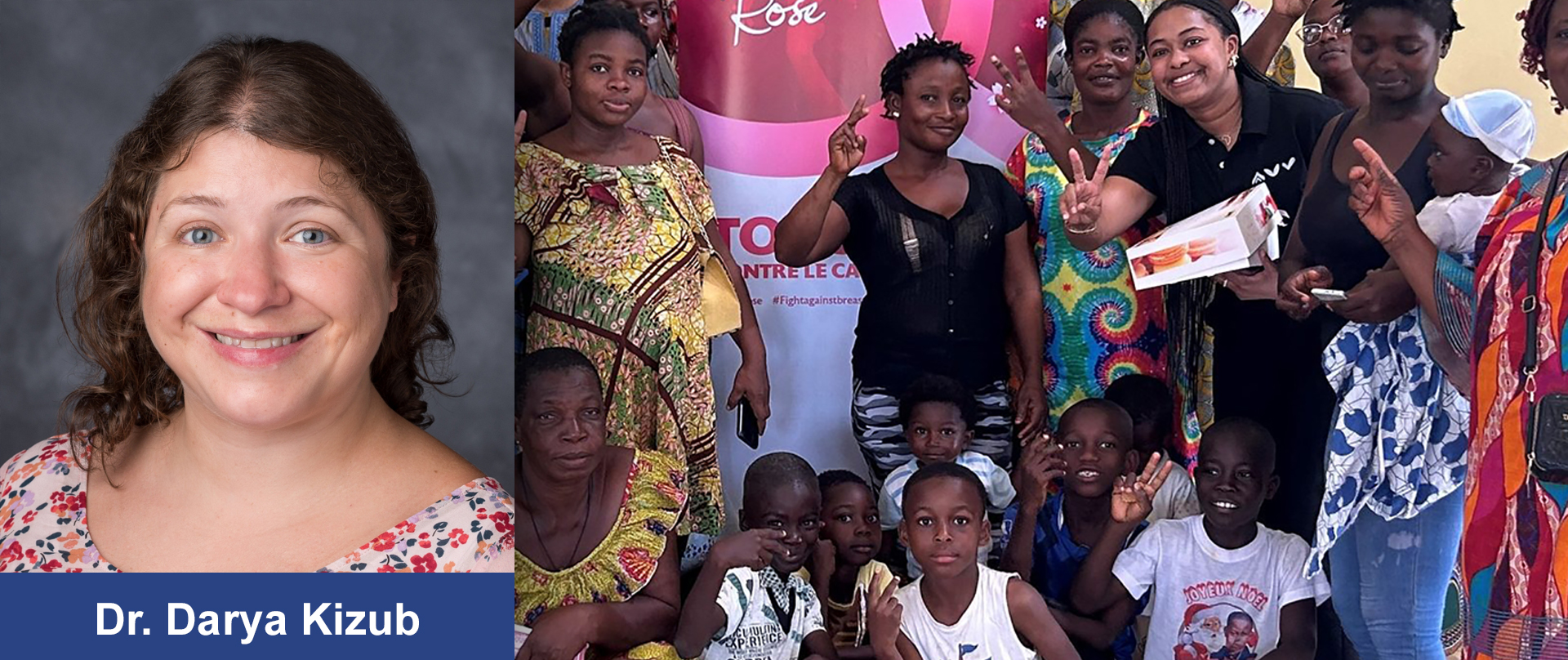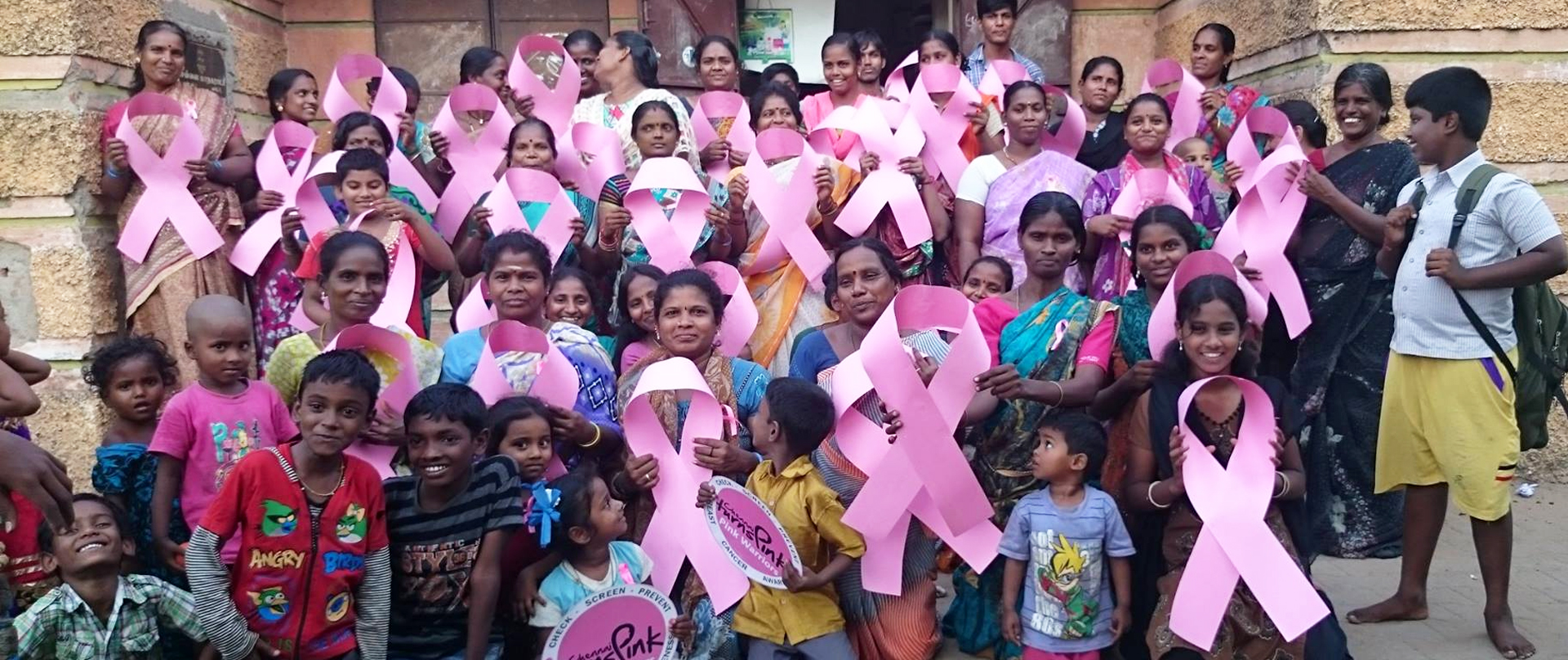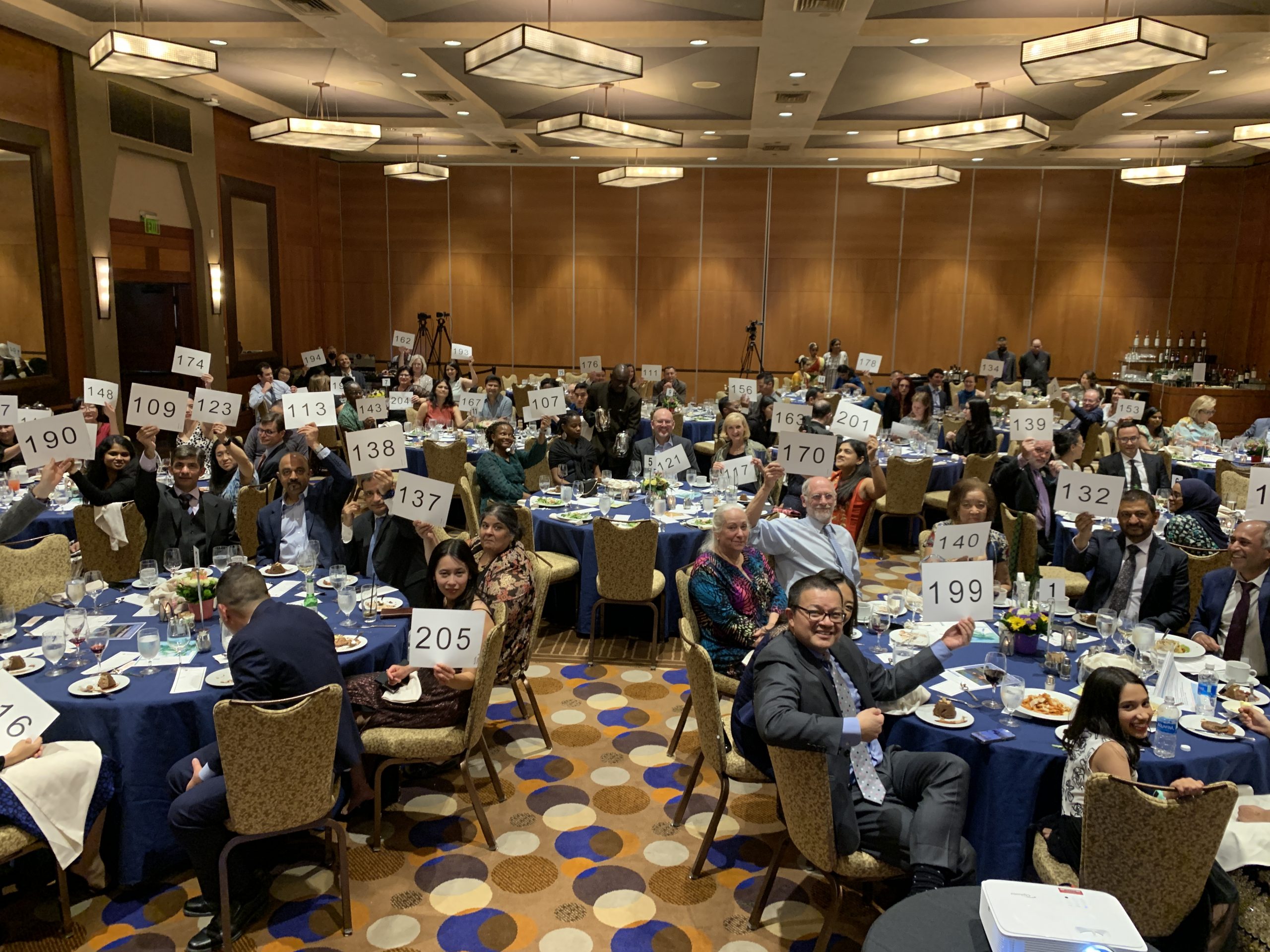In sub-Saharan Africa, breast cancer is a significant health challenge. A majority of the cases are diagnosed at advanced stages; In Côte d’Ivoire in particular, around 70-80% of women receive a diagnosis at stage three or four1. In contrast, only about 20% of women with breast cancer in the United States are diagnosed in later states. In addition, patients are typically responsible for all costs associated with diagnosis and treatment, which can become a huge barrier to care for lower income families. With a severe stage of disease, limited treatment options, and unstable financial circumstances, facing breast cancer in these regions is incredibly challenging, often leading to poorer outcomes for patients.
On Thursday, September 26th, Dr. Darya Kizub joined the Binaytara staff, along with other registered participants, to put on our monthly “Perspectives in Global Health” webinar. She spoke on one of her current programs, which is working to improve breast cancer early detection abilities in Côte d’Ivoire.
Dr. Kizub is an Assistant Professor in the Department of Breast Medical Oncology, which is a part of the Division of Cancer Medicine at the University of Texas MD Anderson Cancer Center in Houston, Texas. She currently serves as a member of the Binaytara Foundation’s Global Oncology Advisory Board and has annually participated in the Summit on Health Disparities, typically held in Seattle each April. She’s passionate about improving cancer outcomes for breast and other cancers in low and middle income countries and promoting equity and diversity in healthcare.
To address this disparity that exists within Côte d’Ivoire, the Dr. Darya Kizub along with Dr. N’Da Marcelin Homian, the head of the Chemotherapy Unit at CHU Treichville in Abidjan, decided to launch a comprehensive program focused on improving early breast cancer diagnosis in Bouaké, Côte d’Ivoire, a which is about a four-hour drive away from the capital. Dr. Homian received a grant from the Coalition of Implementation research in Global Oncology to fund the work and served as a principal investigator on this project.
Despite being the second-largest city in Côte d’Ivoire, Bouaké lacks sufficient resources for cancer care, making it a crucial location for this initiative. To do so, they specifically focused on training healthcare professionals, enhancing referral systems, and providing funding for essential services and treatments.
The project started with a comprehensive needs assessment, which involved interviews with local primary care physicians, nurses, midwives, and gynecologists. The goal was to understand the current patient referral system and identify barriers that are preventing timely diagnosis and treatment.
The needs assessment also revealed more about the financial barriers that are common in the country. Breast cancer care is not covered by the healthcare system, forcing patients to pay for care out of pocket. To mitigate this, the project included funding for both diagnosis and some treatment for indigent patients, ensuring that patients could afford the care they needed.
The program implemented a training program for healthcare professionals spanning five healthcare centers in Bouaké, the curriculum for which was designed using feedback from the earlier interviews. The training covered breast health, including signs and symptoms for malignant and benign cases, the clinical workflow for evaluating breast concerns, and best practices for referral. As a result of this effort, nine physicians, six nurses, and eighteen midwives were able to attend the training and see an increase in their confidence when evaluating patients with breast complaints. Additionally, Project ECHO, a telemedicine platform, was implemented to connect local healthcare providers in Bouaké with oncologists at CHU Bouaké and MD Anderson, providing virtual consultations and case discussions. The project also focused on training patient advocates, particularly breast cancer survivors, to support patients through their diagnosis and treatment journey. This component was led by partners from Uganda, the Uganda Women’s Cancer Support Group (UWOCASO), whose experience with patient advocacy in similar socio-economic and cultural settings provided valuable insights.
The project faced several challenges, including a broken mammography machine and the high cost of private sector imaging services. In response, the team procured core biopsy needles from outside Côte d’Ivoire and trained an oncologist in Bouaké to perform biopsies. The project also introduced regular clinical breast exams at the primary healthcare centers to screen for breast cancer in addition to already ongoing cervical cancer screening. Breast ultrasound and ultrasound-guided biopsies were used for diagnosis when women could not afford mammograms in the private sector. Despite these efforts, cultural beliefs and a lack of awareness around breast cancer continued to pose challenges. Many women delayed seeking care, and even when diagnosis was provided and treatment offered for free, a significant number declined treatment. To address this, the project plans to work with religious and community leaders to improve acceptance of treatment and provide more personalized counseling.
In regards to the patient demographics of the project, the approximately 200 women involved had a mean age of 33 years, with nearly 90% being premenopausal. Only 7.1% reported having a family history of cancer. The time from noticing breast symptoms to seeking medical help varied significantly: 43% of women sought care within a month, while nearly 30% waited over a year. About 80% of those referred for further care went to the gynecology service at the university in Bouaké, with over 40% receiving either a breast ultrasound or mammogram. About one in five of the participants (all of those for whom a biopsy was recommended) underwent a breast biopsy. The median time from initial presentation to imaging was around 15 days, while it took slightly over a month for a biopsy to be performed. The time from biopsy to result averaged 64.7 days, aligning with the World Health Organization’s recommendation of less than 60 days for diagnosis. However, despite meeting this guideline, the two-month timeframe was still considered too long by the project’s physician collaborators. In this first year of the project, 17 women (7.6% of participants) were diagnosed with breast cancer. Of the diagnosed women, 70% had advanced-stage breast cancer. While five women received treatment, nine declined due to concerns about side effects, despite financial support being offered. Sadly, after just 1.5 years of follow-up, six women passed away, underscoring the urgent need for earlier diagnosis and better treatment acceptance in future efforts.
In the first year, the project successfully reduced the time from patient presentation to diagnosis, with most patients receiving a diagnosis within 60 days. The project also highlighted the need to raise awareness among older women, who are more likely to develop breast cancer but were underrepresented in the patient population. Going forward, the project aims to build on its successes by addressing treatment hesitancy through community engagement and enhancing the availability of essential cancer treatments. Collaborations with a variety of sponsors and pharmaceutical companies are underway to secure additional funding to provide free or affordable treatments for breast cancer patients. Overall, Dr. Kizub and Dr. Homian’s Projet Santé Mammaire (Breast Health Project) in Côte d’Ivoire demonstrates the potential that comprehensive programs can have on improving breast cancer care in resource-limited settings.
1All facts and figures presented courtesy of Dr. Kizub’s presentation from the Perspectives in Global Health webinar
Abstract:
N’Da Marcelin Homian et al., Outcomes of a program to improve breast cancer early detection in Cote d’Ivoire.. JCO 42, 10553-10553(2024). DOI:10.1200/JCO.2024.42.16_suppl.10553 https://ascopubs.org/doi/10.1200/JCO.2024.42.16_suppl.10553
Article reviewed by Dr. Darya Kizub, Assistant Professor, Department of Breast Medical Oncology, Division of Cancer Medicine, The University of Texas MD Anderson Cancer Center, Houston, TX.





